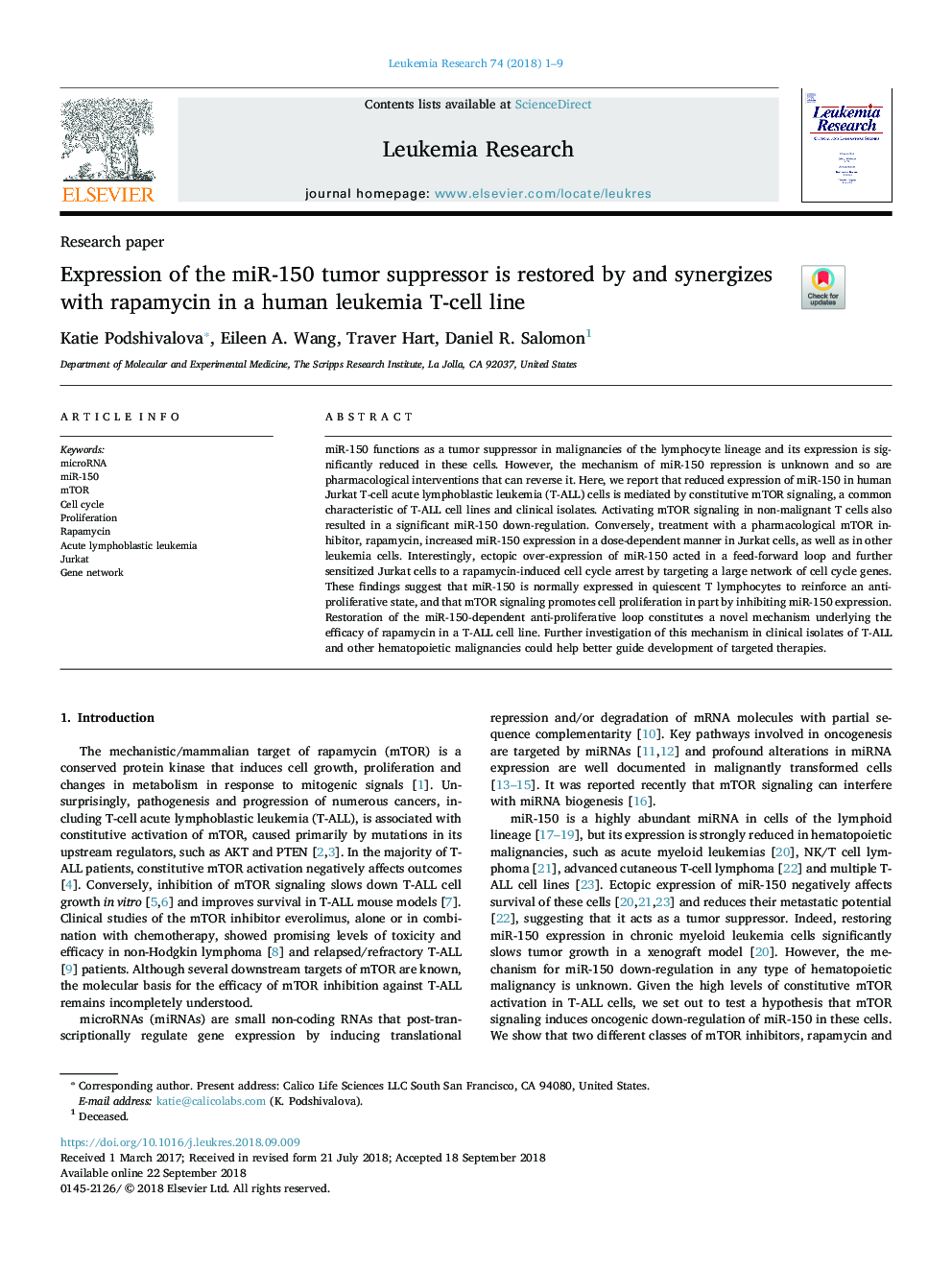| Article ID | Journal | Published Year | Pages | File Type |
|---|---|---|---|---|
| 11019507 | Leukemia Research | 2018 | 9 Pages |
Abstract
miR-150 functions as a tumor suppressor in malignancies of the lymphocyte lineage and its expression is significantly reduced in these cells. However, the mechanism of miR-150 repression is unknown and so are pharmacological interventions that can reverse it. Here, we report that reduced expression of miR-150 in human Jurkat T-cell acute lymphoblastic leukemia (T-ALL) cells is mediated by constitutive mTOR signaling, a common characteristic of T-ALL cell lines and clinical isolates. Activating mTOR signaling in non-malignant T cells also resulted in a significant miR-150 down-regulation. Conversely, treatment with a pharmacological mTOR inhibitor, rapamycin, increased miR-150 expression in a dose-dependent manner in Jurkat cells, as well as in other leukemia cells. Interestingly, ectopic over-expression of miR-150 acted in a feed-forward loop and further sensitized Jurkat cells to a rapamycin-induced cell cycle arrest by targeting a large network of cell cycle genes. These findings suggest that miR-150 is normally expressed in quiescent T lymphocytes to reinforce an anti-proliferative state, and that mTOR signaling promotes cell proliferation in part by inhibiting miR-150 expression. Restoration of the miR-150-dependent anti-proliferative loop constitutes a novel mechanism underlying the efficacy of rapamycin in a T-ALL cell line. Further investigation of this mechanism in clinical isolates of T-ALL and other hematopoietic malignancies could help better guide development of targeted therapies.
Keywords
Related Topics
Life Sciences
Biochemistry, Genetics and Molecular Biology
Cancer Research
Authors
Katie Podshivalova, Eileen A. Wang, Traver Hart, Daniel R. Salomon,
